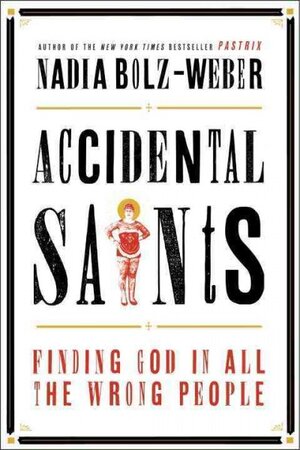 “Nothing personal, but …” These few words so often come before a comment criticizing an action or an idea just expressed that it’s hard not to take them personally. “Nothing personal, but I just don’t see how anyone could (insert your pet peeve).” If I’ve just expressed even a willingness to consider the notion or action named in the pet peeve, I find it difficult not to take it personally when I hear those first words. How about you?
“Nothing personal, but …” These few words so often come before a comment criticizing an action or an idea just expressed that it’s hard not to take them personally. “Nothing personal, but I just don’t see how anyone could (insert your pet peeve).” If I’ve just expressed even a willingness to consider the notion or action named in the pet peeve, I find it difficult not to take it personally when I hear those first words. How about you?
When I looked at the readings for the Fifth Sunday in Ordinary Time, it struck me that God doesn’t work this way. God speaks to each of us personally. With God everything is a part of a personal relationship. This includes waking up in the morning, our reactions to the events of our day, the gifts and challenges we experience along the way, and our going to sleep again at night. The entire day is part of God’s personal gift to each of us.
Isaiah lived in the time of King Uzziah. King Uzziah ruled over Israel for more than 50 years. He was a powerful ruler and military leader who, by the time of his death, had become overly proud and at least once even took the role of the high priest in offering sacrifice in the temple. King Uzziah died in 792 BCE.
Isaiah tells the story of his call to prophecy by situating it in a specific time-period (Is 6:1-2a, 3-8). “In the year King Uzziah died…” The heavens opened and Isaiah saw the Lord seated on his throne, his garments filling the temple of the skies, and Seraphim guarding the entire temple. The angels cried out “Holy is the Lord of hosts, all the earth is filled with his glory!” At these words, the house shook and filled with smoke.
Shaking of the earth is a sign of the presence of the Lord – one of the physical manifestations that ancient peoples took as indicators of divine action in the world. Isaiah believed he was about to die – no one could see the face of the Lord and live. He cried out in fear, knowing that he was a person with human limitations and unworthy to see or speak to/for the Lord.
One of the seraphim cleansed Isaiah’s lips with an ember from the altar, purifying him to be in the Lord’s presence. When the Lord then asked, “Whom shall I send?” Isaiah was ready and willing to volunteer. This was his call to serve as a prophet – a personal invitation from the Lord and a ready response to serve.
St. Paul also received a personal invitation to serve as an apostle of the Lord. Many people were disciples of Jesus. Many people shared their faith with family, friends, neighbors, and others. But not all were called apostles. Apostle means “one who is sent.” Very few of Jesus’ early followers were called apostles. There were the original twelve, one of whom betrayed him. There was one, Matthias, elected after the resurrection to replace Judas Iscariot. Mary Magdalene was known as the Apostle to the Apostles, because Jesus sent her on Easter morning with a message to the eleven remaining members of that close circle of the twelve followers. And then there was Paul, who became known as the Apostle to the Gentiles.
Paul today reminds us of Jesus’ Resurrection and the promise of life for all of us that comes because of Jesus’ passion, death and resurrection. He speaks of the witnesses of the resurrection and reminds the people of Corinth that many of those witnesses are still alive. Then he speaks of his own calling to be an apostle.
Remember that Paul (then called Saul) was one of those who persecuted the Followers of the Way (Christians before they got that name). He was a Pharisee and a teacher of the Law. He wanted to root out this false teaching, to get rid of all who professed these beliefs. He was on his way to Damascus in Syria to arrest people there and return them to Jerusalem for trial and execution if they refused to renounce their faith in Jesus.
Along the way, he met the Risen Christ. It changed his life. A light flashed from the sky and a voice boomed out, “Saul, Saul, why do you persecute me?” Saul asked the one whose voice he heard, “Who are you, sir?” and was told, “I am Jesus, the one you are persecuting.” Jesus instructed him to continue on into the city and wait to be told what to do. Blind and disoriented, he did as he was told. In Damascus, a Christian leader named Ananais received instructions in a vision telling him to go to Saul to heal and teach him. (Acts 9:1-19)
Paul became one of the best known Apostles in history and we read from his letters during most of the year in our Sunday liturgies. Yet his call was personal. Jesus spoke personally to him. Saul/Paul responded to a personal invitation.
And then there was the call of the first of Jesus’ twelve closest friends, the ones who came to be called Apostles. (L5:1-11)
Simon was a fisherman in Capernaum. He worked nights, fishing in the Sea of Galilee. He and other fishermen were washing their nets and preparing to go home. They hadn’t caught anything all night. They were tired and discouraged. Then along came Jesus and their lives were changed.
Jesus was teaching and healing in Capernaum. A large crowd was pressing around him and he found himself at the shore. He asked Simon to take him on his boat out into the water a little ways, so he could teach without people pushing against him. He sat down in the boat and began to teach. When he finished, he asked Simon to take the boat out a bit more and drop the nets again.
Simon knew it was a fool’s errand. Fish didn’t bite during the day, nor did they swim in groups where they would get caught in nets. But he took the boat out a bit anyway and did as Jesus asked. To his surprise the net was filled to bursting with fish. There were so many they couldn’t load all of them into the boat. They had to call for help from other boats.
Simon realized Jesus had to be someone special. His fishing partners, James and John, were also there and had the same astonished reaction that he did. He fell down on his knees in front of Jesus and asked him to leave in peace – ordinary folks had no business dealing with the Lord or the Lord’s messengers! Instead, Jesus reassured him, “Do not be afraid; from now on you will be catching men.”
Simon, James, and John took their boat back to the shore and left everything right there. They followed Jesus for the rest of his days, from Galilee all the way to Jerusalem. After the Resurrection, these three men, called by a personal invitation, continued as Apostles to the rest of their community and the world.
In each of these readings, we see the Lord personally calling an individual. In each case, the individual responded and followed in witness to what they had experienced and known of the Lord.
These calls of individuals have continued throughout history, even into our times. Sometimes we think they are only for the very holy or the remarkable, or the very brave, or…. But actually, they come to each one of us. Some are called to do great and very public things. Some are called to live what seem like very ordinary lives. For some the call is dramatic. For others the call comes gently and over time. But each of us is called. Each of us is known personally by our God. Each of us is deeply, deeply loved and cherished, just as we are, by our God. And each of us is called to share that love with our world.
Today let’s reflect on the call we have received from our God. When have we heard the voice of the Lord? When have we seen the Lord’s actions in our own lives or those of our family and friends? When have we known the consolation of the Lord’s presence in tough times? When have we heard the Lord’s chuckle as we realize once again that he has just been waiting for us to notice something important? When have we known the deep consolation of receiving forgiveness for times we’ve really messed up and done something wrong?
We are all called. It’s always personal with God. And it always involves our community and our world. God cares personally about each and every one of us. With God it’s all personal!
Read More




















